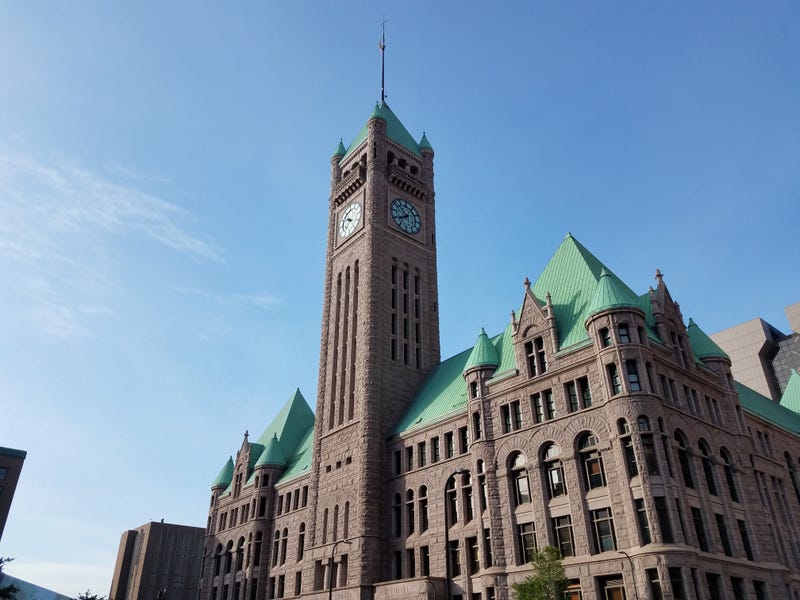
Renters, landlords and activists packed the Minneapolis city council chambers to voice their support – and concerns – over the proposed "renters' protection" ordinance.
The Housing Policy and Development Committee heard nearly three hours of public comment Wednesday afternoon and voted to send the ordinance to the full council. The ordinance would cap security deposits at a maximum of one month's rent and use "inclusive" screening criteria that places limitations on how criminal eviction history are considered.
"The goal of the renters' protection ordinance is to expand access to housing for low-income renters and renters with barriers related to criminal, evictions, and credit history," Andrea Brennan, the Minneapolis Director of Housing Policy and Development, said.
In her presentation to the committee, Brennan said the city studied incarceration and recidivism rates. According to city data, three-quarters of the city's 89,000 renters are considered "housing cost burdened" because rent makes up at least one-third of their income. Evictions are highly concentrated in two north Minneapolis zip codes: 55411 and 55412. Most renters in Minneapolis low-income and families of color.
"The intention of this ordinance is about creating a certain level of access into the housing market where people currently lack it," Minneapolis councilmember Jeremiah Ellison said. "People mentioned things that this ordinance will not do. This ordinance does not build housing. But the city certainly has a lot of initiatives that seek that end."
Neighborhood activists and renters spoke in support saying housing stability can improve the lives of multiple generations of families.
"I grew up here and it has been hard to see how slowly it has been gentrified, how slowly people of color have been displaced, how slowly people of color have been forced into homelessness," Brian Rosas said. "Without proper, safe housing, people aren't able to be a quote-unquote functioning member of society. They can't have good health.They can't raise families. They can't have proper education. They can't keep a job."
"We know that the longer someone is in the community, the chances of them re-offending goes down,"Andrea Palumbo, a housing attorney with HomeLine, said of people with felony convictions being able to access housing.
Most landlords were opposed for a multitude of reasons including crime, overall housing costs and more:
"It caters to bad landlords," Stephen Schachtman with Stephen Scott Management, said. "It codifies unsafe practices."
"I don't feel these problems are going to be fixed by forcing landlords to accept lower standards," Matt Mayott, who owns three properties, said.
"There are portions of this ordinance I strongly support, specially related to credit history evaluation disregarding arrest history, vacated records and juvenile records," Bernadette Hornig with Hornig Companies said. "Hornig Companies' screen criteria, like many of my other colleagues, has been established to screen as many people into housing as possible, rather than to screen folks out. Renters are the lifeblood of our business."
The ordinance was first introduced in March 2018, and authors Bender and Ellison say they've held ongoing discussions with renters and property owners.
"Our community is in crisis," council president Lisa Bender said. "People are asking me, my constituents, how come so many more people are living on the Greenway or in storefronts in Uptown. It's because more people are experiencing homelessness. And if we don't do the simple things that are in our control that we can do now, that problem is just going to grow worse and worse over time."
